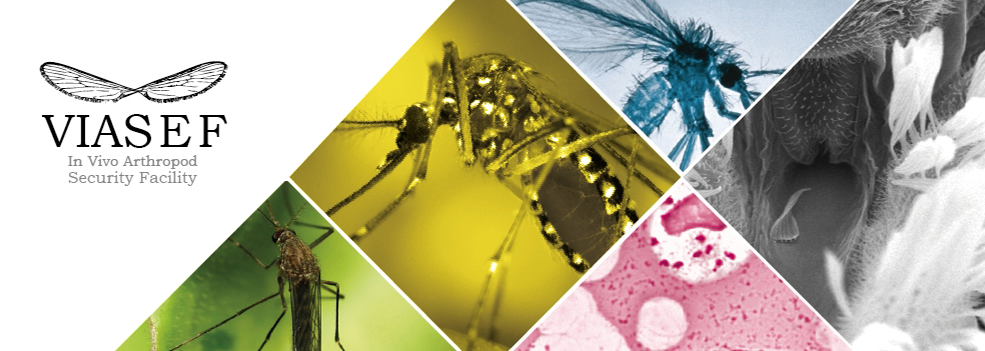VIASEF is a biocontainment infrastructure designed to facilitate research and development activities with invasive, exotic, or transgenic arthropods and human/animal pathogens transmitted by them that may pose biosecurity risks. Its a convertible infrastructure, able to address different types of public health emergencies. This was evidenced when, within the first six months of its inauguration, VIASEF focused its research on SARS-CoV-2, while establishing mosquito colonies of medical importance.
VIASEF has made significant contributions to vector-borne disease research and control.
Projects have focused on innovative vector control strategies, within the framework of insecticides, repellents, and trapping methods have shown enhanced efficacy in reducing vector populations and disease transmission. Moreover, VIASEF has contributed for the testing of innovative compounds as mosquito repellents/larvicides and is part of a project led by the University of California Malaria Initiative (UCMI) in São Tomé and Príncipe, involving field research on malaria mosquito vectors and capacity building on transgenic technologies, as a novel tool to eliminate malaria transmission in the region. Also, it is involved in developing an artificial diet (BLOODless) as an alternative to vertebrate blood which is traditionally used to feed mosquitoes, currently being tested in various African countries to assess its applicability and sustainability.Achievements include innovations like a bloodless mosquito diet and a spatial repellent for malaria control.

Furthermore, VIASEF acts as a hub for teaching and collaborations with local communities and healthcare professionals, fostering knowledge transfer and capacity building. This has allowed individuals and institutions to effectively manage vector-borne diseases, leading to improved prevention and control. The UCMI in São Tomé and Príncipe, for example, facilitates the exchange of knowledge and expertise among partners. VIASEF also provides an exceptional environment for the development of MSc and PhD theses, with 3 MSc theses concluded and supporting 2 ongoing PhD theses thus far. Findings have informed public health policies at both regional and national levels.